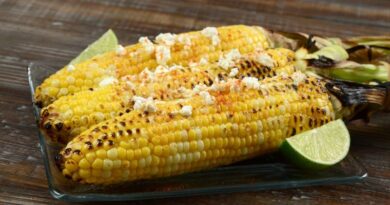In our pursuit of optimal mental performance, the influence of diet on cognitive function is increasingly recognized. Certain foods have garnered attention for their potential to enhance brainpower and overall mental acuity. These superfoods contain essential nutrients, antioxidants, and compounds that support cognitive health, memory, and focus. Understanding and integrating these foods into our daily diet can play a significant role in maintaining and promoting brain function. This blog post delves into six such foods scientifically linked to boosting cognitive abilities, empowering you to make informed choices for a brain-boosting diet.
Best Foods for Cognitive Function
Maintaining cognitive function and brain health is essential for overall well-being, and your diet plays a crucial role in supporting these aspects of your health. Incorporating certain foods into your diet can provide your brain with the nutrients it needs to function optimally. Here are six foods that have been shown to boost cognitive function:
1. Fatty Fish for Omega-3 Goodness

Fatty fish, including species like salmon, trout, and sardines, stand as some of the most potent sources of omega-3 fatty acids, with a special emphasis on DHA, or docosahexaenoic acid. Omega-3s are indispensable for brain health and optimal cognitive function, and their role in supporting the brain cannot be overstated. DHA, in particular, serves as a major structural component of the brain, making up a substantial portion of its composition.
Research has consistently linked the consumption of DHA-rich foods to improved memory and enhanced focus. This essential fatty acid contributes to the formation of neural connections and supports the brain’s ability to transmit signals efficiently. By including fatty fish in your diet, you not only provide your brain with a fundamental building block but also nurture its cognitive potential, fostering mental acuity and overall brain health.
2. Blueberries

Blueberries, celebrated for their delectable taste, come with an added bonus – they are a powerhouse of antioxidants, particularly flavonoids. These antioxidants play a pivotal role in enhancing memory and cognitive function. The consumption of blueberries, on a consistent basis, has been correlated with improved memory retention and overall cognitive performance.
One of the most remarkable attributes of blueberries is their ability to shield the brain from oxidative stress and the effects of age-related decline. The antioxidants found in blueberries act as guardians of cognitive health, countering the damaging impact of free radicals and supporting brain vitality. By incorporating these vibrant berries into your diet, you not only savor their delightful flavor but also fortify your brain’s defenses against the ravages of time, ensuring your cognitive function remains at its best.
3. Brain-Boosting Broccoli

Broccoli, often celebrated for its nutritional prowess, emerges as a true powerhouse when it comes to supporting brain health. Abundant in antioxidants, essential vitamins, and vital minerals, including a notable dose of vitamin K, broccoli stands as a robust ally in bolstering cognitive function.
Vitamin K, a standout component within broccoli, garners special attention for its significant role in promoting brain health. This nutrient has earned its reputation as a cognitive booster, with research suggesting its association with improved memory and heightened focus. By embracing broccoli as a regular part of your diet, you not only supply your brain with an array of beneficial nutrients but also fortify its cognitive resilience, ensuring your mental faculties remain sharp and agile.
Quick Link: Best 8 Foods to Boost Your Fertility
4. Power-Packed Pumpkin Seeds

Pumpkin seeds, aside from being a wholesome snack, stand out as a treasure trove of nutrients that hold significant importance in brain function. Within these small seeds lie essential minerals such as magnesium, iron, zinc, and copper, each playing a pivotal role in supporting cognitive health.
Magnesium is crucial for neurotransmitter signaling, aiding the efficient transmission of messages within the brain. Iron contributes to the delivery of oxygen to brain cells, ensuring optimal cognitive performance. Zinc and copper also join this mineral ensemble, participating in various brain functions that underpin memory, focus, and overall cognitive vitality. By incorporating pumpkin seeds into your diet, you furnish your brain with these vital minerals, fortifying its capacity to function optimally and maintaining your cognitive well-being.
5. Dark Chocolate

Dark chocolate, a treat to be enjoyed in moderation, holds the promise of several brain-boosting advantages. This delectable delight is rich in flavonoids, caffeine, and antioxidants. Flavonoids, in particular, have been associated with enhancing memory and cognitive function, making dark chocolate a delectable ally for your brain’s well-being.
The presence of caffeine in dark chocolate can provide a welcome boost in alertness and mood, adding a touch of mental vitality. Additionally, the antioxidants within this confectionery help combat oxidative stress, contributing to overall brain health. So, while indulging in dark chocolate, you not only savor its rich flavor but also embrace its potential to support cognitive sharpness and emotional well-being, all within the confines of moderate consumption.
6. Turmeric

Turmeric, a radiant spice that graces many culinary creations, houses a remarkable compound known as curcumin. Curcumin’s distinct feature lies in its potent anti-inflammatory and antioxidant properties, making it a formidable guardian of brain health. Consistent inclusion of turmeric in your diet holds the potential to offer significant support to your cognitive well-being.
Curcumin’s anti-inflammatory characteristics play a pivotal role in minimizing brain inflammation, a factor often linked to cognitive decline. Simultaneously, its antioxidant attributes combat oxidative stress, contributing to overall brain protection. By incorporating turmeric into your meals and recipes, you not only infuse your dishes with a burst of flavor but also nurture your brain’s resilience, paving the way for optimal cognitive health.
Final Thoughts
Maintaining and enhancing cognitive function is a multifaceted endeavor, and nutrition plays a pivotal role. The foods we consume have the potential to nurture our brain health. By integrating these scientifically endorsed superfoods into our diets, we embrace the opportunity to support cognitive abilities, memory, and mental sharpness. Understanding the impact of these foods empowers us to make conscious and informed choices that may significantly contribute to our long-term cognitive wellness.
FAQs
Nutrients like omega-3 fatty acids, antioxidants, vitamins (such as B vitamins and vitamin E), and minerals (like zinc and magnesium) play a crucial role in supporting cognitive health and brain function.
While immediate effects might not be noticeable, incorporating these brain-boosting foods into your diet consistently can positively impact cognitive function over the long term.
Yes, certain foods excel in supporting distinct aspects of cognitive health. For instance, fatty fish rich in omega-3s support memory, while blueberries are associated with improved learning and decision-making.
While no food can guarantee prevention, research suggests that a diet rich in these foods may contribute to a reduced risk of cognitive decline and certain neurodegenerative conditions.







